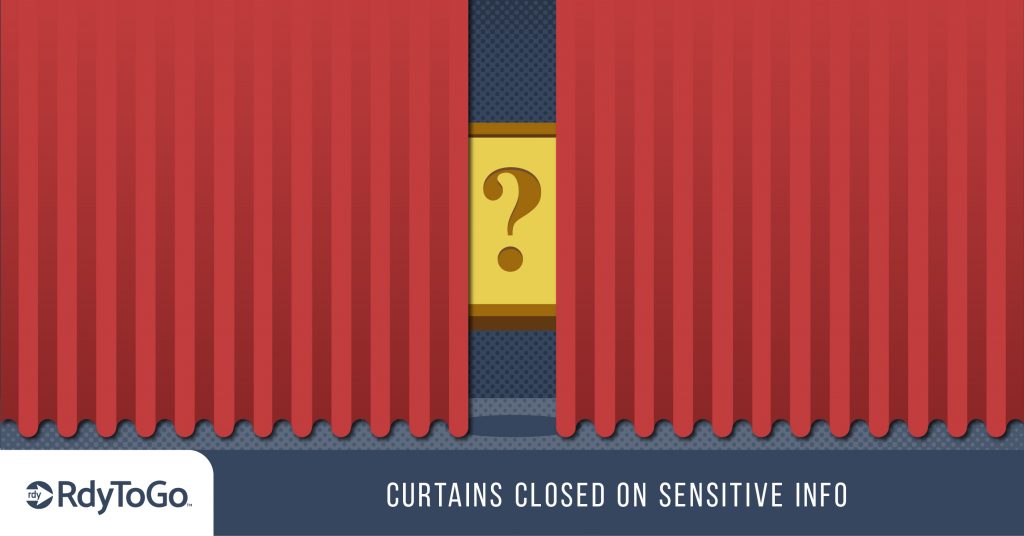
Curtains Closed on Sensitive Info
You’ve probably heard a lot about data breaches in the news, with almost every big company getting hacked. But what is this data that was revealed exactly? Where is the line drawn between public and sensitive information? And what measures can you take to ensure you’re less at risk to divulging too much of your clients’ personal data?
Here at RdyToGo, we handle all kinds of sensitive data needs, from clients in the medical field to e-commerce solutions, and we know the kind of security this information needs. Legal fines for breaches can prove immensely costly, and nobody wants to tangle in a months or years-long court battle over improper network standards.
If you handle anything you can even begin to see as sensitive data, even if it’s not yet on the level of credit card numbers and SSNs, don’t hesitate and don’t be unprepared. Today, we’ll tell you what you should look out for in the information you’re gathering, and how you can carefully handle it.
What They Don’t Want You To See
First thing first, it’s important to know what kind of information is legally considered sensitive. This can often depend on the state or jurisdiction, but there are clear patterns. Social Security Numbers and credit cards are the major players – this information is often targeted and used maliciously.
However, in many places, even phone numbers and addresses can be considered sensitive data – and you will certainly get unhappy clients if you let info like this slip.
In addition, in accordance with the Health Insurance Portability and Accountability Act (HIPAA), any medical information and patient history you have to deal with is considered sensitive data.
Are You Protected?
So, how can you make sure nobody gets their hands on this difficult kind of data?
Obviously, your internal network structure is going to need proper security protocols, but that’s not the only thing you need to worry about.
While internet hackers and poor security can undo you, don’t forget about your physical access ports. Quite a lot of data can be harvested by someone simply plugging a USB port somewhere they shouldn’t have.
Securing your machines physically, keeping them in enclosed, locked racks, or a highly secure server room, is critical for keeping data where it’s supposed to be.
Also, make sure that the only people who can access it are the people that absolutely need it. Restrict passwords and authorization to the barest minimum possible number of people, to lower the risk that one of them might decide to turn an illegal profit, or simply makes a mistake.
In this breach-heavy world of modern cybersecurity, you can never be protected enough. So get yourself a network security expert as soon as you can, and keep valuable data out of the hands of hacker!
